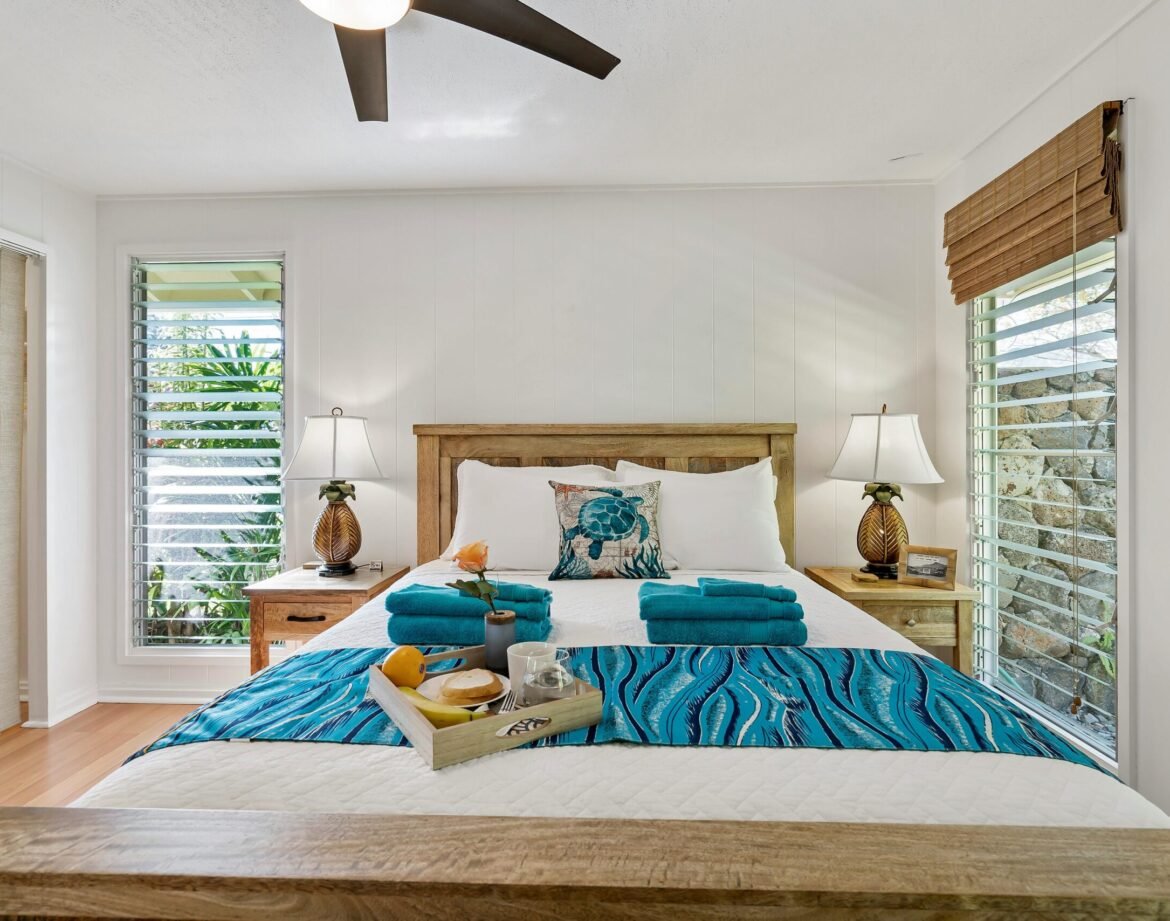Monthly Rentals vs. Short-Term Rentals: Which to Choose to Maximize Profit?
For property owners, the decision between offering monthly (long-term) rentals or short-term stays (like Revisit or vacation rentals) can significantly impact income, workload, and long-term success. This guide dives into the pros, cons, and strategies for both options, helping you make an informed choice tailored to your property and goals.
1. Key Differences at a Glance
A) Income Potential
- Short-Term Rentals:
- Higher nightly rates: Earn 2–3x more per night compared to monthly rates.
- Seasonal spikes: Peak seasons (summer, holidays) can generate surges in revenue.
- Flexibility: Adjust pricing dynamically based on demand.
- Risk: Income fluctuates with occupancy rates (e.g., 60–90% occupancy is typical).
- Monthly Rentals:
- Stable cash flow: Predictable income with 12-month leases.
- Lower overhead: Fewer turnovers, cleaning, and maintenance costs.
- Consistency: No vacancy risks if tenants stay long-term.
B) Occupancy & Effort
- Short-Term:
- High turnover: Requires frequent cleaning, restocking, and guest communication.
- Marketing effort: Listings need constant optimization.
- Guest vetting: Screen for responsible guests to avoid property damage.
- Monthly:
- Low turnover: Tenants stay for months or years, reducing workload.
- Simpler management: Fewer check-ins/outs and less frequent maintenance.
- Tenant screening: Critical to avoid problematic renters (e.g., background checks).

2. Factors Influencing Profitability
A) Location
- Urban areas (e.g., city centers, business districts):
- Short-term rentals thrive due to tourism and business travelers.
- Monthly rentals appeal to students, professionals, or remote workers.
- Rural/vacation destinations (e.g., beaches, mountains):
- Short-term dominates (weekend getaways, seasonal tourism).
- Monthly rentals may attract remote workers or retirees.
B) Property Type
- Studio/1-bedroom apartments: Ideal for short-term stays (couples, solo travelers).
- Family homes: Better suited for monthly rentals (stability for tenants with kids).
- Luxury properties: Can command premium rates in short-term markets.
C) Legal & Regulatory Environment
Often subject to tenant protection laws (e.g., eviction rules, rent control).
Short-term challenges:
Many cities restrict short-term rentals (e.g., permits, occupancy taxes, bans in residential zones).
Compliance costs (e.g., licensing, safety inspections).
Monthly rentals:
3. Financial Breakdown: Case Studies
Case 1: City Center Apartment (2-bedroom)
- Short-term:
- Nightly rate: 150€
- Occupancy: 75% (22 days/month)
- Monthly revenue: 150×22=∗∗150x22=∗∗3,300**
- Costs (cleaning, fees, utilities): ~800€
- Net profit: 2,500€
- Monthly:
- Monthly rent: 2,200€
- Costs (maintenance, property tax): ~300€
- Net profit: 1,900€
Verdict: Short-term yields higher profit but requires active management.
Case 2: Suburban Family Home (3-bedroom)
- Short-term:
- Low demand (few tourists).
- Monthly revenue: ~1,500€ (50% occupancy).
- Monthly:
- Rent: 2,500€ (stable, long-term tenants).
Verdict: Monthly rentals are more profitable here.
- Rent: 2,500€ (stable, long-term tenants).
4. Hybrid Strategies to Maximize Earnings
A) Seasonal Switching
- Rent monthly during off-peak seasons, switch to short-term during high-demand periods (e.g., ski resorts in winter).
B) Corporate Rentals
- Target business travelers needing 1–6 month stays. Balances higher rates with lower turnover.
C) Rent Rooms Individually
For large homes: Rent unused rooms short-term while living there.
5. Legal & Tax Considerations
- Short-term:
- Collect and remit occupancy taxes (varies by region).
- Report income as self-employment/business revenue.
- Monthly:
- Rental income is typically taxed as passive income.
- Deduct mortgage interest, repairs, and depreciation.
Always consult a local accountant or lawyer to navigate regulations.
Conclusion: Which Is Right for You?
- Choose short-term rentals if:
- Your property is in a high-demand tourist/business area.
- You’re comfortable with hands-on management or hiring a property manager.
- You want to maximize income during peak seasons.
- Choose monthly rentals if:
- You prefer steady, predictable income with minimal effort.
- Local laws restrict short-term rentals.
- Your property appeals to long-term tenants (e.g., families, professionals).
Pro Tip: Test both models! List your property for short-term stays first, then switch to monthly if occupancy is inconsistent.









WP Rentals has been the best platform for me because of the people that I met, the money that i make, if any problem comes up costumer service is ALWAYS there. Literally the guys are trying their best! My profile has over 160 reviews and all my listings are book 3 months ahead!
In the past, these types of services have been used largely by thrifty tourists looking for the cheapest place they can find in a particular city. Now, however, more and more business travelers and professionals are looking to WP Rentals for a unique and memorable experience.
We want the 2015 WP Rentals to inspire, equip, and celebrate you. And we want to gather with the host community to learn how to do what we do better. Let’s make this year’s summit one to remember! Stay tuned as we reveal exciting details in the days to come.
WP Rentals can benefit both hosts and travelers. Hosts get to meet people from around the world while making a little extra money, and travelers can often stay for less than the cost of a hotel room. In addition, many travelers enjoy accommodations that offer a different experience from standard hotels.